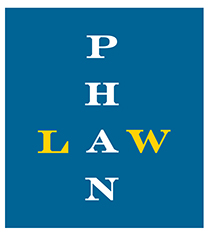The Extended Evaluation Program (“EEP”) for Texas Nurses
What is the Extended Evaluation Program for Nurses and How is the Texas Peer Assistance Program for Nurses (“TPAPN”) Involved?
In the arena of professional license defense and as a Texas nurse attorney, I often handle cases involving nurses who have a positive drug screen. A nurse who presents with a positive screen for either a controlled substance or alcohol while licensed in the State of Texas faces many challenges especially as it relates to the Texas Board of Nursing (BON) and their licensure. A possible solution is the Extended Evaluation Program.
Because the Board of Nursing’s goal is to protect the safety of the public, the Board of Nursing is more than likely inclined to monitor a nurse found to have violated its intemperate use provision (Occupations Code 301.452(b)(9)) through a formal disciplinary order which then follows the nurse throughout his or her career.
Generally, final disciplinary orders contain information regarding an individual’s conduct and the specific violations of the Nursing Practice Act and Board rules.
Such conduct could include substance abuse, practice errors–such as medication administration or nursing documentation errors–or could relate to instances of fraudulent conduct or prior criminal history. The Board of Nursing makes no bones about what it is trying to accomplish with a final disciplinary order that is a matter of public record–that employers, potential employers, and consumers of nursing services must be aware of an individual’s conduct to make informed decisions about employing an individual with a disciplinary history or receiving nursing care from an individual with a disciplinary history.
Instances When a Nurse Can Benefit From the Extended Evaluation Program
A nurse who has a single, identified incident involving a positive screen, no history of chemical/alcohol dependency or abuse, no negative evaluation when assessed by a qualified assessor for substance abuse or dependency, and no other legal or practice concerns may be eligible for the Extended Evaluation Program (EEP). The EEP is a voluntary monitoring system that promotes a system that helps nurses avoid possible disciplinary action against their licenses.
The program is designed to demonstrate that the nurse does not have a drug or alcohol program. The EEP is administered by the Texas Peer Assistance Program for Nurses (TPAPN). Per TPAPN, the program offers a voluntary and solutions-based approach to identifying and addressing risk rather than a punitive approach based on blame. It allows nurses to demonstrate a lack of substance abuse use disorder. All nurses going through the EEP program must be approved for participation by the Texas Board of Nursing.
Requirements of the EEP
A nurse who participates in the EEP is required to do the following:
- Pay a one-time, nonrefundable enrollment fee of $250;
- Enroll in EEP’s drug testing program;
- Submission of signed EEP participation agreement;
- Payments for drug testing at a usual frequency of 1-3 times per month;
- Daily access to the EEP drug testing system either online or via phone;
- Undergo drug testing when selected;
- A minimum of 12 months of participation in EEP with a minimum of 18 negative drug tests;
- Abstain from all illicit substances, potentially abuseable prescription medications and other abuseable substances including over-the-counter drugs and alcohol.
- A minimum of six months of consecutive nursing practice during participation;
- Submission of employment pay stubs to validate required nursing practice during EEP participation;
- Bear responsibility for the cost of any assessment if required;
- Submission of any for cause drug screens requested by EEP.
A nurse who has an adulterated, diluted, missed drug test or a positive drug test is dismissed from EEP participation. Further dismissal is warranted if there is a third party report that indicates of a possible practice violation due to suspected drug or alcohol impairment or failure to adhere to any other EEP terms of participation.
Once dismissed from EEP, a nurse may be considered for participation in TPAPN or will be reported to the Board of Nursing for disciplinary action. EEP is a voluntary program so a nurse who declines participation will be reported to the BON for action.
Benefits of the EEP
One of the positive features of the EEP program is that there are no work agreements or practice restrictions for nurses. However, EEP program participants should take care to make arrangements with their employers to accommodate submitting drug screens when randomly selected. Generally EEP will not communicate with a nurse’s employer, but will do so only upon noncompliance by the nurse per the EEP consent.
The Bottom Line
In our opinion this program has proven beneficial to those nurses who qualify: nurses who are involved in an isolated incident involving a chemical substance or alcohol and are not abusing that substance and further exhibit a low risk of doing so in the future. Indeed this program is not for all nurses and not ideal for those dealing with more serious chemical dependency issues.
Make no mistake that undergoing the requirements of this program is also not a cakewalk. How many of us can wake up each day and religiously remember to dial a phone number to find out if that day is the day that we will have to drop our normal routine to go in and give a urine sample. As with all difficult things, the payoff at the end justifies the long and difficult road one must travel to get to the reward at the end. Because at the end of the road, upon successful completion, the nurse is discharged from the program and the initial incident remains confidential.










